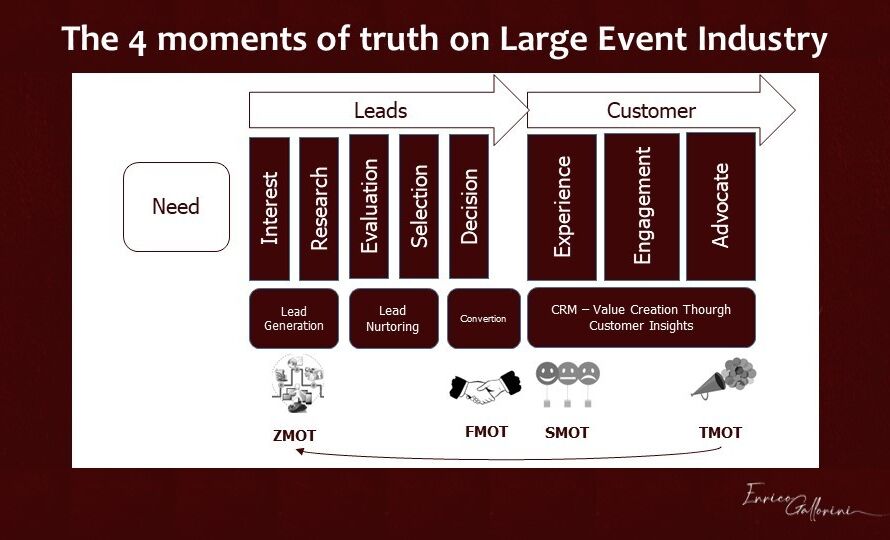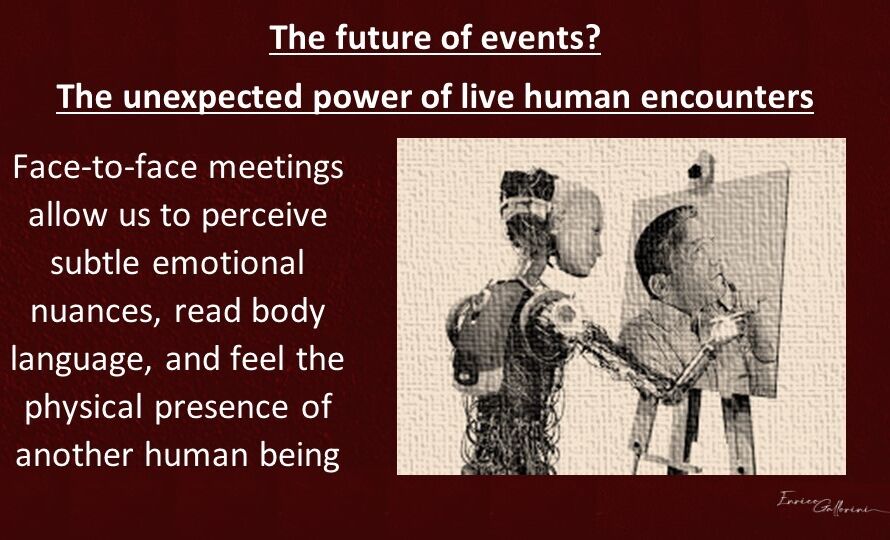Introduction:
It is incredible that after decades of studying AI, often without receiving the proper attention, adequate financial resources, or concrete prospects, the top researchers of artificial intelligence are distancing themselves from their work.
The issue is not technological, and beyond being an ethical problem, it is primarily an epistemological problem that will have a significant impact on the world of collective events commonly knonw as Exhibitions.
Where is AI going?
Now that it seems like the time for AI has arrived, and the brightest minds in the field have crowned their life’s work of studying and researching this topic, the world’s most important references in this technology are distancing themselves from their creations.
The most striking case is undoubtedly Geoffrey Hinton, one of the leading experts in neural networks who worked for Google for over a decade and recently raised concerns by leaving the company.
But in addition to him, Yoshua Benjio, Gary Marcus, and over a thousand other industry leaders have expressed criticisms, as have several members of the Association for the Advancement of Artificial Intelligence, including Eric Horvitz, Chief Scientist Officer at Microsoft.
Why?
The concerns of these researchers are diverse: the spread of fake news, the automation of many jobs, cyber attacks, and the military use of AI are the topics of discussion.
However, the main issue is not so much about ethics, as it was already a central theme before the current hype around this topic, but rather the actual development model of AI.
These researchers have been clear: they criticize the competitive approach promoted mainly by OpenAI, controlled by Microsoft, and by Google, which recently acquired DeepMind.
In particular, the launch of ChatGPT by OpenAI, along with the success of other generative AI solutions, has changed the course of the industry’s development. The adoption of ChatGPT by 100 million users in the first two months had a huge impact on competition.
In fact, we must remember that Google, which had previously been hyper-cautious about making its AI accessible to the general public, abandoned caution and decided to exploit all its power.
This is with the awareness that the rapid introduction of these new technologies does not allow for adequately evaluating their consequences.
The main concern related to this “competitive” diffusion is the proliferation of false content, which primarily threatens the reliability of search engines.
Hinton has stated:
“We will no longer be sure of what is true and what is false”
If the technological problem exists, in addition to an ethical problem, it is primarily an deeper human2human relationship problem.
Amidst all this, the component of social relationships between human beings develops, where in a world where we will no longer be able to distinguish reality from fake… the meeting face2face that is not “mediated” by technology becomes central.
For this reason, I believe that the role of exhibitions will become even more important in the future, and it is necessary to understand today that it is not only a “competitive” role to be seen as an opportunity, but also the “social” function where the collective event of specialized niches, commonly known as “exhibitions” will have a decisive role in the development of human beings … as it has always had in the past, but today the value of the function changes scale, and it should not be underestimated.
I believe as an industry, it is necessary to begin talking about it.


